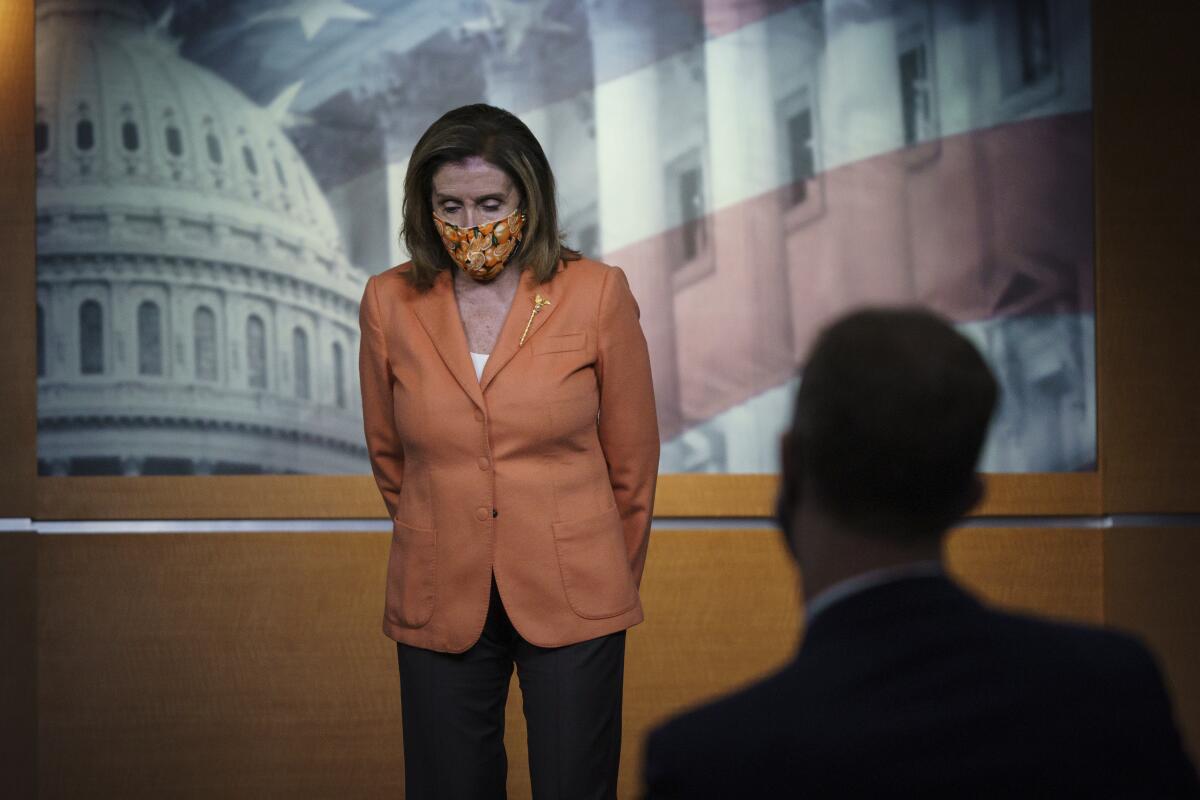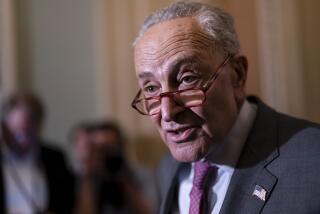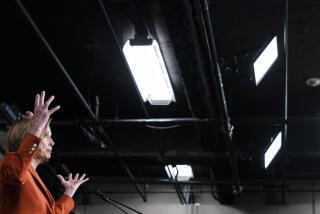Opinion: We need another stimulus bill from Congress. Now

- Share via
There’s no escaping the fact that politics weigh heavily on the negotiations between House Speaker Nancy Pelosi (D-San Francisco) and the Trump administration over a new coronavirus relief bill.
But there’s also no escaping the fact that the economy’s recovery from the pandemic-induced recession has slowed. No matter who you think would be helped politically if Congress passed another stimulus bill, there are tens of millions of Americans who need to be helped financially.
The need extends beyond the 12.6 million Americans that the Bureau of Labor Statistics counted as unemployed in September (a number that excludes nearly 2 million adults who have given up looking for work). It’s every worker and business that depends on consumer spending, which is threatened by shrinking personal incomes.
Consumer spending has rebounded to the point where it’s a little higher now than it was just before the COVID-19 pandemic hit the United States. But spending growth has slowed considerably since the summer — affected, no doubt, by the reduction in money pumped in by Washington. The federal government stopped providing an extra $600 per week in unemployment at the end of July; President Trump temporarily offered $300 a week in extra benefits, but only through early September (although claims were delayed in many states and may still be paid retroactively).
The end of all the enhanced unemployment benefits could spell trouble for the economy, Andrew Kositkun of City National Bank wrote in a note to investors Wednesday.
“Absent a new fiscal stimulus package, retail sales and the greater economy should face growing headwinds,” Kositkun wrote. Among the problems, he said, is the rising number of COVID-19 cases, whose effect on the economy will be neutral at best. “This underscores the need for fiscal action,” he added, meaning more stimulus spending by Congress.
The Justice Department lawsuit accusing Google of abusing its online search and advertising dominance marks the first blow to Big Tech.
The holdup in approving more spending has long been the yawning chasm between what the Democratic-controlled House wanted (it approved a $3-trillion stimulus bill in mid-May, then passed a pared-back, $2.2-trillion proposal at the beginning of this month) and what Senate Republicans were willing to consider (they tried to push through a $500-billion proposal Wednesday, only to be blocked by Senate Democrats). So, impasse.
But there’s another political dimension too. Some GOP critics suggest that Democrats in general, and Pelosi in particular, may be unwilling to compromise because they don’t want to hand a victory to President Trump shortly before the election. Pelosi has dismissed that argument, but she has stuck to her guns on a number of disputed issues, including the need for a big, comprehensive package of responses to the pandemic.
Meanwhile, Senate Majority Leader Mitch McConnell (R-Ky.) reportedly has pushed Trump not to make a pre-election deal, warning that it would interfere with the Senate’s ability to confirm Judge Amy Coney Barrett to the Supreme Court.
For his part, Trump has been a singularly unreliable negotiator. After unilaterally ending stimulus negotiations on Oct. 6, he has since pushed for a package that spends $1.8 trillion or more. Still, his eagerness for a deal will help. Pelosi has said significant differences remain over issues such as aid to state and local governments and liability protections for businesses, but that the talks with the White House have progressed.
Of course, a House-White House deal is no guarantee that the Senate will pass it. That will be a test of Trump’s sway over the chamber’s Republicans, who didn’t support even a $1-trillion proposal cobbled together by GOP leaders earlier this year. It’s easy to imagine them filibustering a plan to spend twice that amount, no matter what Trump wants.
But again, that shouldn’t be the consideration here. If ever there was a time to borrow money for the sake of helping struggling Americans and boosting growth, it’s now, when the interest rate on 30-year Treasury notes is far less than the projected growth rate of the U.S. economy in the coming years. The needs are great today, and they’re likely to get greater in the months ahead without action now.
More to Read
A cure for the common opinion
Get thought-provoking perspectives with our weekly newsletter.
You may occasionally receive promotional content from the Los Angeles Times.












